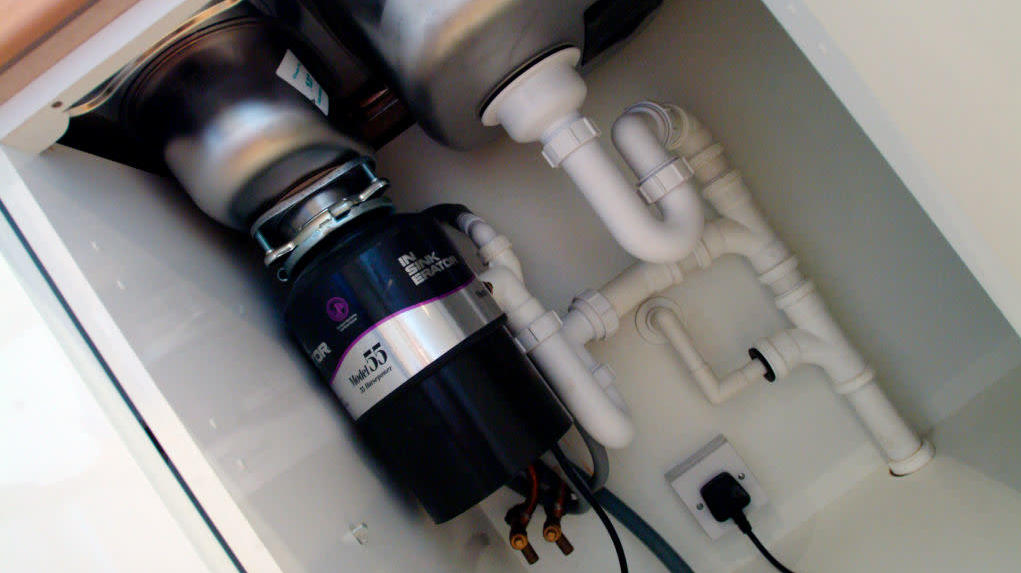TIL Garbage Disposals Were Illegal In New York City For Decades
Growing up in a century-old house teaches you to tread lightly. There's the loose banister to avoid, the one door that never closes properly, and perhaps most of all, there's the plumbing, a decades-old network of grumpy, temperamental pipes that only allow toilets to flush and tubs to drain when they feel like it, and you'd better keep them nice and toasty warm in the winter if you want to avoid a burst pipe and a flooded basement. When you're conditioned to be reflexively gentle on these older parts of your household, the very idea of a garbage disposal seems chaotic and dangerous. And today I learned from Takeout staff writer Allison Robicelli that pretty much the entire city of New York feels the same way. In fact, until 1997, garbage disposals were outright illegal in NYC.
Garbage disposals have been around since the 1930s, and they are a common household appliance, but not ubiquitous. A 2009 Household Survey of 130,112 housing units conducted by the U.S. Census Bureau found that 63,776 units, or roughly 49% of homes, had disposals in their kitchen sink. But they remain relatively rare in New York City even 23 years after the prohibition on disposals was lifted, because, as a 2013 New York Times article explains, landlords and managers of old buildings simply don't want to deal with them.
A garbage disposal functions by taking all the food scraps you feed down your kitchen drain and forcing them along the perimeter of a grind ring, which is outfitted with slicing edges that break the food down into particles small enough to safely pass through plumbing without clogging the pipes. (Incidentally, this is another thing I've learned today: I always figured there were big pointy blades shredding everything like Edward Scissorhands, but the mechanism is a lot more like rubbing cheese over the smallest holes of a box grater.) Even though disposals can dice the food up into ultra-tiny pieces, they still shoulder a lot of blame for putting too much pressure on old plumbing. The Times has a particularly colorful passage explaining how the ban on disposals began in New York City:
Garbage disposals were banned in much of the city in the 1970s over concerns for the aged sewer system. (More creative and gruesome reasons worked their way into city lore. Stuart M. Saft, the chairman of the Council of New York Cooperatives and Condominiums, said he had heard the police feared that the bodies of murder victims might be disposed of down the drain. And in an essay in The New York Review of Books in 1991, Joan Didion wrote that a city employee had expressed concern to her that people might be tempted to "put their babies down them.")
Despite these concerns, the ban started to lose its hold in the 1990s. There were some who continued to advocate for it on the grounds that water treatment facilities have to work much harder when so many solids are in the system. But a 1995 study of the impact of disposals on the sewage system doled out a free garbage disposal to 200 lucky New Yorkers in Queens, Brooklyn, and Manhattan for 21 months and tracked what happened, and the conclusion was that the appliance caused "no potential significant adverse impacts." The ban was ultimately lifted in 1997.
New York wasn't the only place to ban disposals, but it was the largest city to do so for such a long time. In 2008, Raleigh, North Carolina, banned the appliance before rescinding the ban just one month later. For the few scant weeks it existed, the ban was wildly unpopular. Residents hated it, manufacturers hated it, and as one expert pointed out, all the evidence the city had presented in support of it had one major flaw: there was no proof that food scraps were what was causing the persistent clogs in Raleigh's municipal sewer lines. Instead, grease and fats were just as likely the culprit, congealing in pipes and causing blockages. And that's true everywhere else, too. So be careful not to grind up anything chock-full of oily fat in your garbage disposal (other maintenance tips can be found here), and as always, don't pour your bacon grease down the sink—use it in cookies instead.
